
This two-day course was presented on January 30-31, 2015 by Design Corps, SEED Network, and bcWORKSHOP. The Institute provides design and planning professionals with in-depth study on methods of how design can address the critical issues faced by communities. Training in public interest design is a way of enhancing an existing design practice and learning skills to become pro-actively engaged in community-based design. The curriculum is formed around the Social Economic Environmental Design (SEED) metric, a set of standards that outline the process and principles of this growing approach to design. This process provides a step-by-step aid for those who want to undertake public interest design. Certification in the SEED process is given.
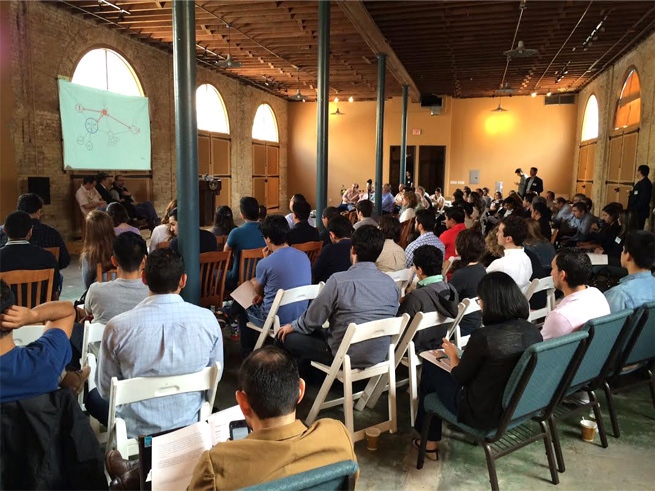
Institute Recap – Evaluation Results and Comments
On a scale of 1 to 5, how valuable was the Public Interest Design Institute for you?
“5” is very valuable? “3” is somewhat valuable? “1” is not at all valuable
Average Score: 4.2
How will what you learned be of value in your work?
- When planning county projects that deal with colonias, infrastructure, disaster management, emergency services district (FIRE & EMS), and other projects in cooperation with other communities.
- PID is of huge value since I’m a student pursuing a career in architecture, and it can influence me how to design more economically and environmentally safe.
- As a reference for my work and as a tool to teach others
- I learned about the different ways of working towards public interest design and what others are making in the USA (I\’m from México) and learned about the processes that are needed in order to achieve this.
- \”To think outside the box. To have a holistic approach to solving problems. To strive for excellence.\”
- Having a system/process of work that allows me document and validate my work in PID.
- I\’m a civil engineer, so it\’s kind of hard to apply PID to installation of a sanitary sewer line, for example. However, I frequently work hand-in-hand with architectural firms (civil site design) so the course did give me some valuable insight into the big picture, i.e. what a versatile design team is capable of accomplishing for the common good of the community.
How would you describe the value of public interest design to others in your field?
- Great, informative and an eye opener
- PID is supporting the philosophy that people have a choice and the design process is equitable to all.
- Public interest design creates an awareness of the social, economic, and environmental aspects of our communities. Working together to bring on a more harmonious environment that blends with the culture of the area will make our county and cities a healthy and desirable place to live. Becoming an advocate to influence the people of the community will help to educate and inform them in making better decisions for their communities and avoiding costly mistakes.
- Architects in general are willing to donate their time and talents to worthwhile projects. Helping families that can’t afford our services is a way of giving back to our communities. We do not live in a shell. We owe our communities some of our time and talents and this is a way of giving back!
- It is valuable as it will help them to visualize and approach issues with a different perspective.
- Like a tool to show and measure the value of the Design beyond of making beautiful things.
Speakers
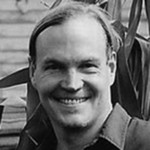
Bryan Bell: is the Academic Leader of each session, the founder of Design Corps, founder of the Public Interest Design Institute, and a co-founder of SEED. Bell has supervised the Structures for Inclusion lecture series for ten years which presents best practices in community-based design. He has published two collections of essays on the topic. Bell has lectured and taught at numerous schools including the Rural Studio with Samuel Mockbee. He has received an AIA National Honor Award in Collaborative Practice. His work has been exhibited in the Venice Biennale and the Cooper Hewitt Museum Triennial. He was a Harvard Loeb Fellow in 2010-11 and a co-recipient of the 2011 AIA Latrobe Prize which is focused on public interest design.
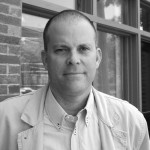
Brent Brown, AIA, LEED AP: is an architect and founder of bcWORKSHOP in Dallas, TX, where his work has been recognized locally and nationally. Recently, the U.S. Department of Housing and Urban Development in conjunction with the AIA awarded his Congo Street Green Initiative the 2010 National AIA/HUD Secretary Award for “Community-Informed Design.” Brent recently represented the southwest region as part of the President’s Forum on Clean Energy and Public Health at the White House. The forum discussed the role of community design toward the promotion of healthier lifestyles. He earned his Bachelor of Environmental Design and Master of Architecture from Texas A & M University.
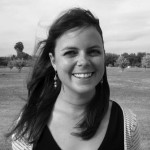
Ceara O’Leary: is a Senior Project Manager at the Detroit Collaborative Design Center. She joined DCDC in 2012 as an Enterprise Rose Architectural Fellow. Previously, Ceara worked as a Community Designer with bcWORKSHOP, setting up an office in the Lower Rio Grande Valley and contributing to a community-based planning project in colonias across Hidalgo and Cameron Counties. From 2010-2011, Ceara was the inaugural Public Design Intern at the Gulf Coast Community Design Studio in Biloxi, Mississippi, where she worked on community design and development projects. Ceara graduated from the University of California, Berkeley with Master\’s degrees in Architecture and City & Regional Planning and earned her undergraduate degree from Brown University.
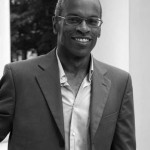
Maurice Cox: is the Associate Dean for Community Engagement at the Tulane University School of Architecture in New Orleans. He served as Design Director of the NEA in Washington, DC from 2007-2010 where he led the Mayor’s Institute on City Design and the Governor’s Institute on Community Design. Cox was a Charlottesville City Councilor for six years before becoming the mayor of that city, from 2002-2004. His experience merging architecture, politics, and design education led to his being named one of “20 Masters of Design” in 2004 by Fast Company Business Magazine. Cox received his architectural education from the Cooper Union School of Architecture.
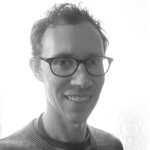
Britton Jones: is a Landscape Architect at the Gulf Coast Community Design Studio (GCCDS) in Biloxi, MS. His work focuses on merging social, ecological, and economic systems through community-based design. Britton’s expertise are in the realms of environmental restoration and urbanism. Britton fosters public-private relationships with local, regional, and national partners to facilitate and fund projects that improve our communities. His projects include downtown master plans, pedestrian and bicycle suitability planning, watershed planning, wetland restoration and occasionally playful and interactive urban installations.
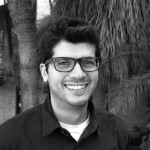
Omar Hakeem: is the Associate Director of bcWORKSHOP’s RGV office. Omar’s passion for design has taken him from the cloud forests of Costa Rica to the ravaged communities of the Gulf Coast and many places in between. Through these opportunities Omar has studied and practiced how design can act as a catalyst for supporting resilient, sustainable communities. Omar leads the Rio Grande Valley office in its efforts to build social and environmental equality through design and planning. Originally from Washington, D.C., he received his B.S. of Architecture from SUNY Buffalo, and a Master of Architecture and M.S. of Sustainability from the University of Minnesota in 2009. Omar is currently pursuing his professional licensure.

Elaine Morales: is a Design Associate at bcWORKSHOP. She leads the design and construction work for RAPIDO disaster recovery housing pilot program and supports other housing projects within the RGV office. She has particular interest in community development in post-conflict and post-disaster contexts, and how communities design their environments. She obtained a Bachelor of Environmental Design, a MArch and an Urban Studies Certificate from the University of Puerto Rico (UPR), and a Master of International Cooperation from the International University of Catalunya (UIC) in Barcelona, Spain. She was previously involved with Architecture for Humanity (AFH) in Brazil, and worked as a research and needs assessment intern for the Risk Reduction and Rehabilitation branch of UN-HABITAT in Kenya.
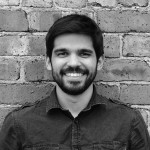
Hugo Colón: is a Planning and Design Associate at bcWORKSHOP. He was born and raised in Puerto Rico where he received a Bachelor Degree in Environmental Design and a Master Degree in Architecture from the University of Puerto Rico. He pursued a second Master degree in Landscape Architecture from Harvard Graduate School of Design, from which he graduated in 2013. Hugo has managed the Colonias Public Space & Storm-water Low Impact Development which seeks to empower residents to advocate for drainage systems that best fit their needs. Hugo is also working with the RGV Transport projects, and contributing to the LUCHA and Casitas Los Olmos projects in the Rio Grande Valley.
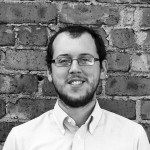
Jesse Miller: is a Design Associate at bcWORKSHOP. He works in the RGV office and focuses on housing design through the sustainABLEhouse initiative, the Rapido program, and multifamily developments. Jesse finds tremendous value in how [bc]’s work is always evolving and learning from itself while teaming up with different partners and communities on various projects. He was previously a Public Design Intern at the Gulf Coast Community Design Studio in Biloxi, MS. Jesse earned a B.S. in Architecture and a Master of Architecture at Ball State University. While in graduate school, Jesse studied at the Instituto Tecnológico y de Estudios Superiores de Monterrey in Monterrey, Mexico working on his thesis titled “Between Tradition and Dissent: Learning From and Working With Ignored Communities.”
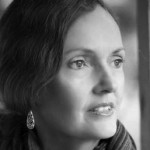
Lisa Mitchell-Bennett: is a community organizer, journalist, and health educator. She is currently a Senior Research Associate/Project Manager for the Tu Salud ¡Si Cuenta! Campaign (UT School of Public Health). Lisa was born in Mexico City, and has lived and worked in Latin America and Europe. She studied political science at the University of California and has Masters’ degrees in International Development and Public Health. She arrived in Brownsville 20 years ago to work with refugees and fell in love with the historic border town. Lisa’s work promote healthy, active living through environmental and policy change, community health workers, and media to prevent and control obesity and related chronic conditions.
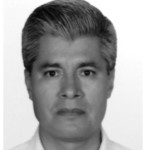
Pedro Pacheco Vazquez: is a Professor of housing and community design studios at Tecnologico de Monterrey. Dr. Pacheco combines theory and practice by involving students either as interns or as service providers. He typically uses the service-learning methodology as a tool to connect students with the realities of site and clients. Since 1994 Dr. Pacheco has provided consultancy and advice for private and public organization on projects ranging from housing prototypes to community centers and a botanical garden. In 2013, he created T-kio, a firm dedicated to community planning, design and construction as a vehicle to expand his services and to integrate other professionals in the consultancy work. He completed his PhD in Adult and Community Education at Ball State University, and earned a Masters degree in Urban and Community Planning and a Masters degree of Architecture from Iowa State University.

Ramiro Gonzalez: is the Redevelopment Manager for the City of Brownsville. With an undergraduate degree from George Washington University and a Masters in Community and Regional Planning from the University of Texas at Austin, Ramiro chose to return to his hometown in 2009 becoming the Comprehensive Planning Manager for the City of Brownsville. Ramiro has worked on major initiatives in Brownsville including Downtown Revitalization and Brownsville\’s Master Hike and Bike Plan. In addition to his efforts on Downtown Revitalization, he serves on the TSC Architecture Advisory Committee, TXDOT State Bicycle Advisory Committee, Brownsville Wellness Coalition, and the Community Advisory Board.
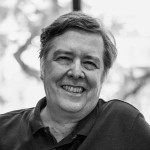
John Henneberger, 2014 MacArthur Fellow: is an advocate for fair and affordable housing who has created a new paradigm for post-disaster rebuilding. Skilled at identifying points of agreement among parties with varying, often opposing, economic interests and political views—such as developers, elected officials, and community members—Henneberger was an architect of a conciliation agreement with the State of Texas for Hurricanes Dolly and Ike post-disaster rebuilding. This agreement has helped to restore equity in disaster assistance for persons with disabilities, racial and ethnic minorities, and expanded low-income residents’ involvement in disaster re-building.
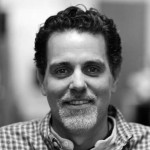
Nick Mitchell-Bennett: is Executive Director of the Community Development Corporation of Brownsville. He currently serves as the chair of the Board of Directors of the Texas Association of Community Development Corporations and as well as a board member of the National Rural Housing Coalition and Proyecto Juan Diego. Nick holds an M.S. degree in Economic Development from Eastern University and a B.A. degree in Political Science/International Studies from Tabor College, Hillsboro, Kansas. He graduated from the NeighborWorks Achieving Excellence Program at Harvard University Kennedy School in March, 2012. Under his leadership, CDCB has become one of the biggest developers in the Rio Grande Valley.
Location:
The Market Square Research Center
1150 Market Square Street
Brownsville, TX 78520
Pricing:
General:
• Early Bird (ends 1/15/2015): $35
• Regular: $45
Student:
• Early Bird (ends 1/15/2015): $25
• Regular: $35
Sponsors:
• LRGV AIA
• Community Development Corporation of Brownsville (CDCB)
• Brownsville Community Improvement Corporation (BCIC)
Schedule:
Friday January 30th
| 8:00–9:00 9:00–10:00 10:00–10:15 10:15–11:45 11:45–1:00 1:00–2:30 2:30–3:00 3:00–4:30 4:30–5:00 5:00–6:00 | Registration + Coffee Rose Gowen – Bryan Bell – Brent Brown | Intro to Public Interest Design Institute Coffee Break Brent Brown – John Hennenberger – Nick Mitchell Bennett | Panel 1 – Inclusive Strategies Lunch (on your own) Hugo Colon – Britton Jones – Pedro Pacheco Vazquez | Panel 2 – Building it better Coffee Break Omar Hakeem – Elaine Morales – Jesse Miller | bcWorkshop General Discussion + Reception Downtown Bike Tour |
Saturday January 31th
| 8:30–9:00 9:00–10:30 10:30-10:45 10:45-12:00 12:00-1:00 1:00–2:00 2:00–3:30 3:30–4:30 | Breakfast + Coffee Maurice Cox | Keynote Lecture Coffee Break Ramiro Gonzalez – Ceara O’leary – Brent Brown | Panel 3 – Downtown Economics Lunch (on your own) SEED Training and Discussion Omar Hakeem – Maurice Cox – Lisa Mitchell-Bennett | Panel 4 – Healthy Environments SEED Certification Review + Exam |


